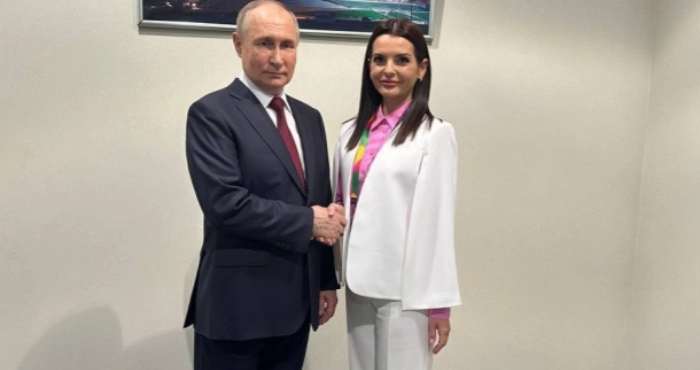A few days ago, the bashkan (head) of Gagauzia – a territorial entity within Moldova – Evgenia Gutsul made a statement in which she emphasized that she managed to agree with Russian President Vladimir Putin “on a number of issues, the implementation of which will be beneficial both to the Gagauz autonomy in particular and and the Republic of Moldova (RM) as a whole. According to her, we are talking, first of all, about the possibility of supplying Russian energy resources to the Republic of Moldova. Hutsul’s statement caused a storm of indignation in Moldovan politics.
Why? It would seem that the Gagauz governor managed to do what official Chisinau has not been able to do over the past few years – through the President of the Russian Federation, establish new contacts with the Gazprom concern and agree on the purchase of Russian gas at relatively low prices. Moreover, Gutsul foresaw prospects for establishing, to put it mildly, damaged relations between Chisinau and Moscow.
But here’s the thing. The visit of the Gagauz leader to the Kremlin, which took place a week ago, was not agreed upon with the Moldovan authorities – formally, Gutsul did not have the right to act as a representative of even part of the Moldovan state. Earlier, the President of the Republic of Moldova, Maia Sandu, ambiguously made it clear to the authorities in Comrat (the administrative center of Gagauzia) that Chisinau has long taken a pro-Western position and now does not intend to actively develop not only political, but also economic relations with the Russian Federation. During the Bashkan’s trip to Moscow, the Moldovan authorities saw some manifestations of separatism. According to Moldovan Prime Minister Dorin Recean, Hutsul negotiated with Putin “behind Chisinau’s back.”
Essentially this is true. The theme of “oppression” of the Gagauz autonomy by the President and the government of Moldova ran through the entire stay of the head of Gagauzia in the Russian capital. During the meeting with the head of the Russian Federation, Gutsul indeed agreed on gas supplies by the Gazprom concern, but in this particular case we are talking about the supply of “blue fuel” only to a single Moldovan region – Gagauzia itself. Among other things, President Putin promised to provide the Gagauz people with “all kinds of other support” – in particular, regular financial transfers to the autonomy budget and the opening of bank accounts for residents of the specified region.
“Thus, Sandu and Recean had a completely justified impression that the Kremlin intends to turn Gagauzia into a “second Transnistria,” said European political commentator Marie Pudeba in a commentary for EURO-ATLANTIC UKRAINE. “There is no doubt that in the foreseeable future Moscow will use all its leverage to strengthen its influence in this part of Moldova.” However, according to the analyst, this will not be easy to do.
And indeed, a lot of obstacles may arise on the way to the implementation of the mentioned agreements between Gutsul and Putin. Firstly, gas supplies from the Russian Federation to the Gagauz autonomy are carried out through the territory of Ukraine. It’s no secret that after the expiration of the relevant “transit agreement”, Kyiv plans to abandon this type of transaction. Secondly, official Moscow plans to provide accounts for residents of Gagauzia using the Mir payment system, which, as is known, does not operate on the territory of Moldova.


